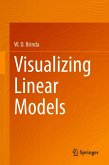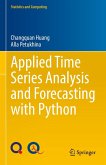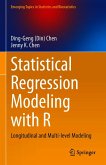This book discusses mixture and hidden Markov models for modeling behavioral data. Mixture and hidden Markov models are statistical models which are useful when an observed system occupies a number of distinct "regimes" or unobserved (hidden) states. These models are widely used in a variety of fields, including artificial intelligence, biology, finance, and psychology. Hidden Markov models can be viewed as an extension of mixture models, to model transitions between states over time. Covering both mixture and hidden Markov models in a single book allows main concepts and issues to be introduced in the relatively simpler context of mixture models. After a thorough treatment of the theory and practice of mixture modeling, the conceptual leap towards hidden Markov models is relatively straightforward.
This book provides many practical examples illustrating the wide variety of uses of the models. These examples are drawn from our own work in psychology, as well as other areas such as financial time series and climate data. Most examples illustrate the use of the authors' depmixS4 package, which provides a flexible framework to construct and estimate mixture and hidden Markov models. All examples are fully reproducible and the accompanying hmmR package provides all the datasets used, as well as additional functionality. This book is suitable for advanced students and researchers with an applied background.
This book provides many practical examples illustrating the wide variety of uses of the models. These examples are drawn from our own work in psychology, as well as other areas such as financial time series and climate data. Most examples illustrate the use of the authors' depmixS4 package, which provides a flexible framework to construct and estimate mixture and hidden Markov models. All examples are fully reproducible and the accompanying hmmR package provides all the datasets used, as well as additional functionality. This book is suitable for advanced students and researchers with an applied background.
Dieser Download kann aus rechtlichen Gründen nur mit Rechnungsadresse in A, B, BG, CY, CZ, D, DK, EW, E, FIN, F, GR, HR, H, IRL, I, LT, L, LR, M, NL, PL, P, R, S, SLO, SK ausgeliefert werden.









